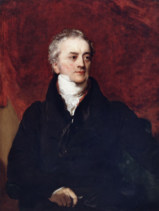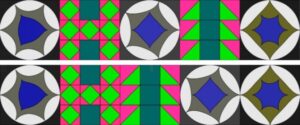Matin Durrani isn’t sure if Thomas Young, who was one of the greatest polymaths of his day, could have emerged in the modern world

As far as book titles go, I always liked the 2006 effort from the science writer Andrew Robinson. His biography of Thomas Young was cleverly called The Last Man Who Knew Everything. Whether the maverick British polymath really could claim that crown is neither here nor there, but the title underlined his intellectual reach. Young’s astonishing efforts stretched from physics and mathematics to physiology and linguistics.
Here at Physics World we’ve had Young on our minds as 2023 marks the 250th anniversary of his birth. Robinson has released a second edition of his book, with a new foreword from the UK’s Astronomer Royal Martin Rees, an edited version of which you can enjoy as a Physics World feature. “Young’s writings were literally encyclopaedic,” Rees remarks, “and he ranks as one of the most prolific polymaths in history.”
Physicists will be most familiar with Young’s double-slit experiments, which demonstrated interference and proved the wave behaviour of light. The Young’s modulus is also a reminder of his work on elasticity. But Young did so much more. He coined the modern term “energy”. He linked heat and light. He estimated the diameter of a molecule. He was a professional medic, analysed some 400 languages and started deciphering Egyptian hieroglyphs.
Sadly, polymaths aren’t always appreciated. We love to pigeon-hole people and tend to remember those with just one great achievement to their name. Even in his own time, few fully grasped Young’s insights, the ripples from which still reverberate. Richard Feynman, for example, famously imagined firing single electrons through a Young’s double-slit set-up to prove the dual wave–particle nature of matter. It wasn’t until this century, however, that the experiment was carried out.

Thomas Young: prolific polymath and unassuming genius
But could anyone today share Young’s breadth of achievements? A quick Google gives us access to more information than Young could have imagined possible, while an AI system like ChatGPT turns us all – superficially at least – into polymaths. But can we draw any new insights from the deluge of information at our disposal?
The 21st-century education system would never let a modern-day Young flourish. Science is so specialized that it takes decades of perseverance and focus to reach the forefront of some fields, while in others we need thousands of collaborators to progress. In Young’s day, in contrast, everything was up for grabs and the term “scientist” did not even exist. That’s why Young truly was (slightly sexist terminology notwithstanding) “the last man who knew everything”.
- Andrew Robinson is speaking at the “Polymaths across the eras” conference at the University of Oxford on Saturday 18 November 2023, which can be livestreamed on YouTube.
- SEO Powered Content & PR Distribution. Get Amplified Today.
- PlatoData.Network Vertical Generative Ai. Empower Yourself. Access Here.
- PlatoAiStream. Web3 Intelligence. Knowledge Amplified. Access Here.
- PlatoESG. Carbon, CleanTech, Energy, Environment, Solar, Waste Management. Access Here.
- PlatoHealth. Biotech and Clinical Trials Intelligence. Access Here.
- Source: https://physicsworld.com/a/thomas-young-could-a-polymath-like-him-exist-today/
- :has
- :is
- :not
- $UP
- 2006
- 2023
- 400
- a
- AC
- access
- achievement
- achievements
- across
- AI
- All
- also
- always
- Amazon
- an
- and
- any
- anyone
- AS
- At
- BE
- behaviour
- birth
- book
- breadth
- British
- but
- called
- CAN
- carried
- Century
- claim
- click
- CO
- coined
- collaborators
- Conference
- contrast
- could
- Crown
- day
- decades
- demonstrated
- DID
- disposal
- domain
- draw
- edition
- Education
- effort
- efforts
- electrons
- emerged
- enjoy
- estimated
- Even
- everything
- example
- exist
- experiment
- experiments
- eye
- familiar
- famously
- far
- few
- Fields
- firing
- flourish
- Focus
- For
- forefront
- from
- fully
- gives
- Go
- great
- greatest
- had
- Have
- he
- here
- him
- his
- history
- holding
- However
- http
- HTTPS
- i
- if
- image
- imagined
- in
- information
- insights
- intellectual
- Interference
- into
- issue
- IT
- jpg
- just
- just one
- Languages
- Last
- lawrence
- least
- let
- light
- like
- linked
- love
- man
- mathematics
- Matter
- maverick
- max-width
- minds
- Modern
- molecule
- more
- most
- much
- name
- Nature
- Need
- Neither
- never
- New
- notwithstanding
- November
- of
- on
- ONE
- open
- Others
- our
- own
- Oxford
- painting
- People
- perseverance
- Physics
- Physics World
- plato
- Plato Data Intelligence
- PlatoData
- possible
- professional
- Progress
- prolific
- Prove
- proved
- public
- Quick
- ranks
- reach
- really
- released
- remember
- reminder
- Richard
- ripples
- royal
- saturday
- Science
- sexist
- Share
- single
- Sir
- So
- some
- speaking
- specialized
- started
- Still
- STX
- sure
- system
- takes
- term
- terminology
- than
- that
- The
- their
- There.
- this
- those
- thousands
- Through
- thumbnail
- time
- Title
- titles
- to
- today
- true
- truly
- turns
- underlined
- university
- University of Oxford
- until
- us
- version
- was
- Wave
- we
- were
- whether
- which
- while
- WHO
- why
- will
- with
- Work
- world
- would
- writer
- You
- young
- youtube
- zephyrnet













